A $10 test that could save the lives of five Aussie babies a day not delivered as promised
Hunter is one of many Australian newborns whose life could be saved with a simple test. Now, parents are fuming they have to wait longer than promised as babies die from undetected conditions.
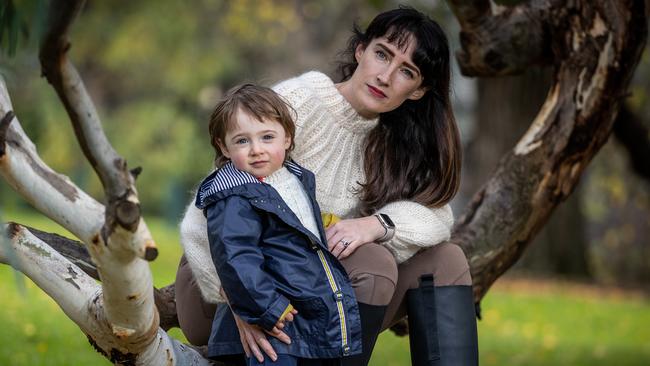
Health
Don't miss out on the headlines from Health. Followed categories will be added to My News.
EXCLUSIVE
For years parents and health officials have battled to have a blood test which screen babies at birth for 80 serious conditions to be rolled out nationally.
Less than a week after the Senate heard it could take up to 14 years for approval – and just a day after News Corp Australia contacted Health Minister Mark Butler – his office revealed they had struck a new deal with states to fast track testing.
Australian babies will be screened for 32 conditions in every state by the end of the year, while a further 15 conditions including Pompe, Batten’s disease, Sanfilippo Syndrome and GAMT deficiency are in the process of being assessed to be included in the list.
The promise to screen babies for all 80 conditions was meant to be delivered by June 30, however within two years around 50 conditions are expected to be included in the national testing program, which until now has been a postcode lottery with different states testing for different conditions.
Mr Butler said as a result of the agreement for the first time Australia would have a nationally consistent approach to newborn bloodspot testing.
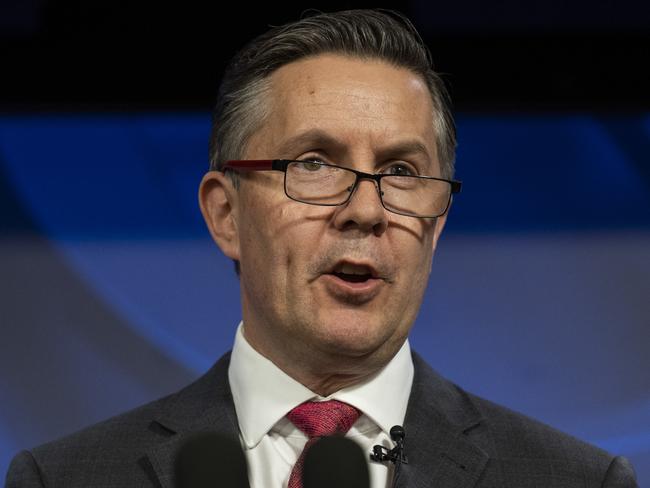
“The Albanese Government is delivering on our election commitment to put an end to the newborn screening postcode lottery by making sure every baby born in Australia has access to the same screening program,” Mr Butler said.
“We want parents to be confident that no matter which hospital their child is born, their baby will be appropriately and consistently screened for rare conditions, that the screening result is accurate and that they will be connected to support and services wherever they live.”
Better Access Australia chair Felicity McNeill said: “Every day he does not deliver on this commitment represents up to five babies a day missing out on a lifesaving diagnosis.”
“The Health Minister’s new commitment to put a tranche of 15 diseases through the MSAC process every two years will do nothing to end the diagnostic odyssey for families,” Ms McNeill said.
“Babies will continue to suffer permanent disability and worse still, we will lose many babies to treatable diseases because of process-for-process sake,” she said.
During a Senate Estimates hearing Opposition Health Spokeswoman Anne Ruston accused Prime Minister Anthony Albanese of holding a newborn baby and making an election commitment that was“undeliverable in the lifetime of this government or the next government or the one after”.
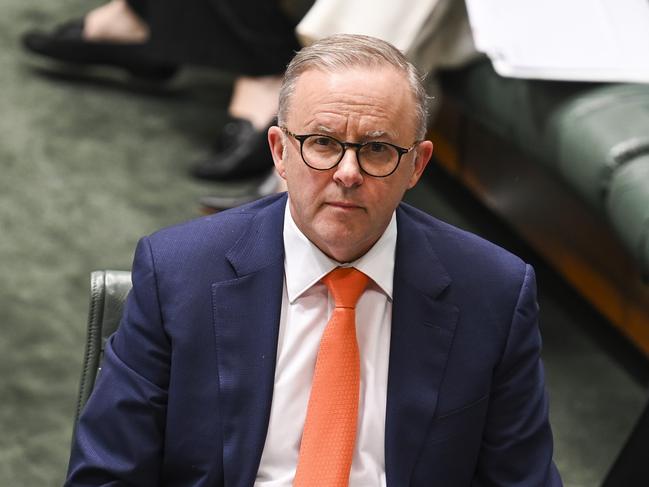
The Parliamentary Budget Office costed Labor’s promise “with a start date of 1 July 2022” and said five new testing machines costing $750,000 each would be purchased to carry it out and increased testing would start before June 30 2023.
However, after the election patient groups were told each of the 55 new conditions that were to be added to the testing regime would have to be approved by a government advisory body.
Rare Voices Australia CEO Nicole Millis said the new process was “a milestone moment for children and families with rare diseases in Australia”.
“Screening is life-changing and can be lifesaving,” Ms Millis said.
“We now have and when we didn’t have before, way to sustainably fund this program and then now he’s like clear pathway for conditions to be included,” she said.
HAVING BABY IN AUSTRALIA ‘CRITICAL MISTAKE’
Documentary film maker Joh Kelly made “a critical mistake” in 2017 to return to Australia to have her first child “because I believed we had better health care than America”.
Shortly after her son Hunter was born he became ill and it took doctors a long time to discover he suffered from a very rare condition called Severe Combined Immunodeficiency (SCID).
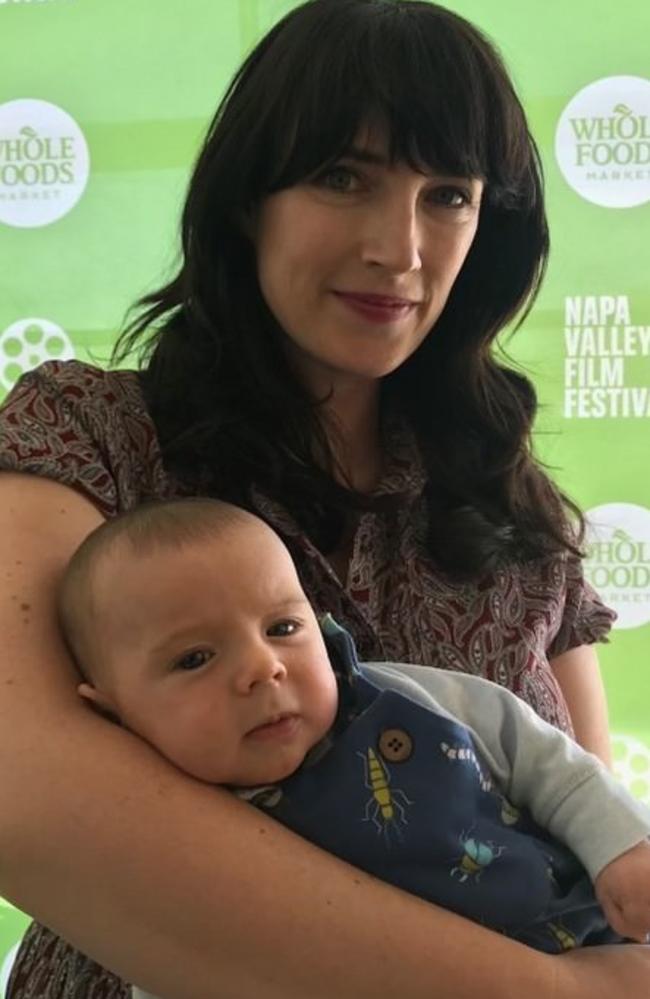
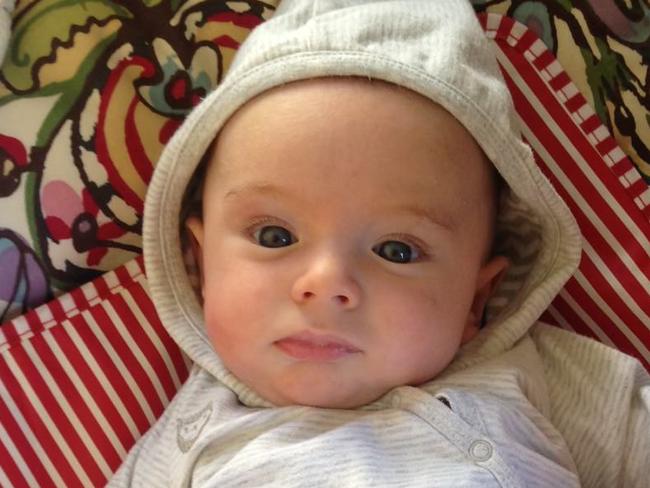
Babies with the “Boy in a Bubble” condition have no immune system and can’t fight off infection. They need a bone-marrow transplant within the first three months of life to give them any chance of survival.
Hunter did have a heel prick test for 25 conditions at birth but, unlike in most other countries in the world, SCID was not included in Australia’s outdated testing list.
“If we’d stayed in New York or been in any other metropolitan city on Earth, including even undeveloped nations, they would have picked up SCID,” Mrs Kelly said.
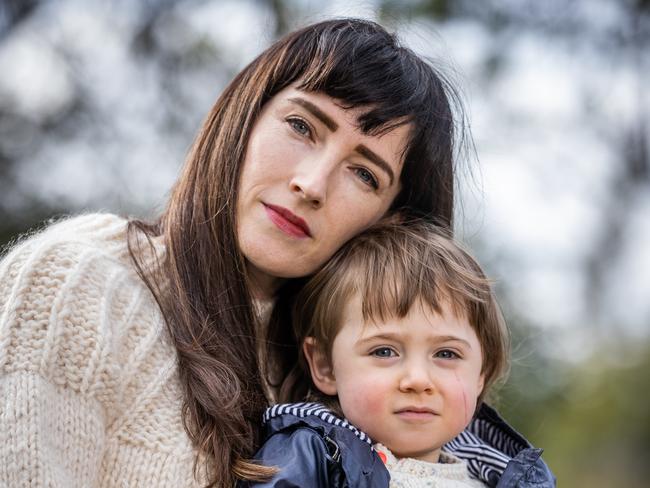
Mrs Kelly has since had a second child with the same condition. But thanks to prenatal testing his condition was picked up and he had a bone-marrow transplant in time.
Expanding the testing program would cost $10 per child which is far more cost effective than treating sick children at a cost of $4,375 per child per night in ICU, Mrs Kelly said.
“Without this test we’ll miss a critical diagnosis for five babies a day,” she said.
SCID was included in newborn testing in NSW last year and other states will introduce it soon.





